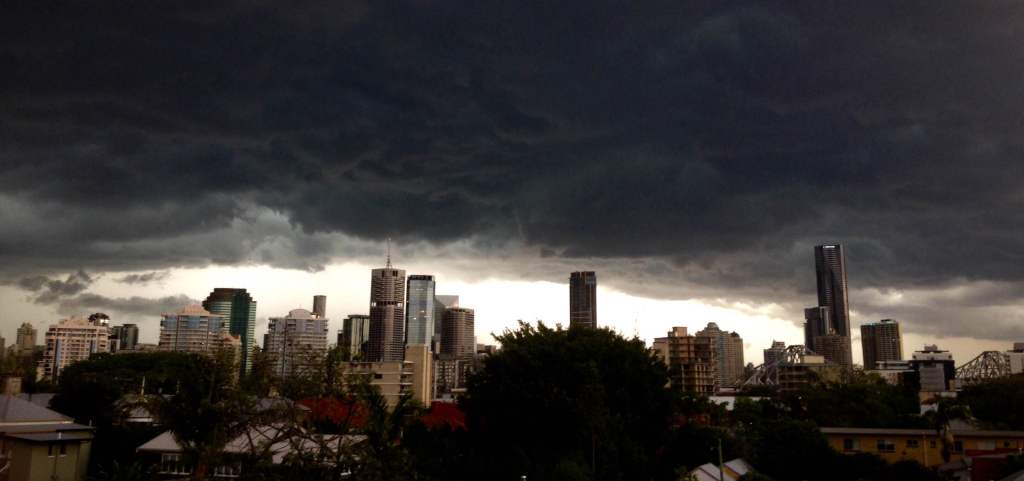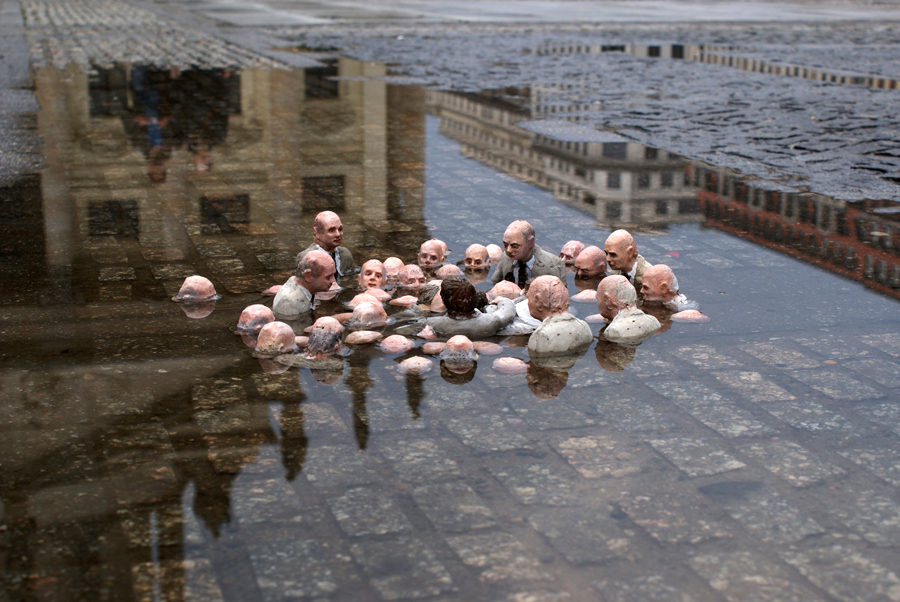Human influence on the climate system is clear, and recent anthropogenic emissions of greenhouse gases are the highest in history. Recent climate changes have had widespread impacts on human and natural systems. – Intergovernmental Panel on Climate Change Fifth Assessment Synthesis Report 2014
We have near universal consensus that climate change is real, and caused by us. The problems predicted since the early 70s are starting to manifest in increasingly violent global weather patterns; record storms have ravaged both of my home cities Malmö and Melbourne this year. And while writing this in Brisbane my grandmother and I have battened down the hatches while we wait out a hailstorm warning. Extreme weather is the new normal. Because of people.
Yet I still insisted on flying home to spend Christmas with my family sending masses of CO2 and other nasties spewing into the atmosphere. I blithely jump in the car instead of walking to the shops, become seduced by cheap knick knacks, go hiking instead of attending political demonstrations, WhatsApping friends instead of writing to local politicians, buying out-of-season avocadoes packaged in three layers of plastic… these everyday decisions seem so unconnected to the abstractness of climate change.
Why is it so hard for my brain to link my local, individual actions with our global, collective challenges?
I think the problem is that individual actions seem so insignificant in the face of these epic climate events. Not only insignificant but also unconnected. Hidden amongst the aggregation of all human actions, and by unpredictable response time. Obscured by long production chains. We rarely glimpse the murky underbelly of capitalism.
Anthropogenic greenhouse gas emissions have increased since the pre-industrial era, driven largely by economic and population growth. – IPCC Fifth Assessment Synthesis Report 2014
So, if growth is the biggest driver of the mega storms and other extreme weather events, why don’t we just stop growing? Many of the more recent economists agree that the modern world functions because of capitalism, and that capitalism and growth are two sides of the same coin. Capitalism can no more be ‘persuaded’ to limit growth than a human being can be ‘persuaded’ to stop breathing – Murray Bookchin, 1990.
However, instead of confronting capitalism as the root of growing consumption and the resulting climate change, ecological economists are instead searching for ways to adapt and alleviate capitalism’s aims from pure profit to also incorporating environmental and social metrics. Tim Jackson made some progress here with Prosperity without growth? The transition to a sustainable economy in 2009. But these don’t address the fundamental dependency of capitalistic systems on growth, let alone offer politically implementable alternatives: the capacity of capitalism to deliver higher living standards, along with the negative track-record of state-socialism in terms of both human and environmental impacts, has led to the total discredit of any non-capitalist approaches to development – Wilhite and Hansen 2012. Even if, while delivering high living standards in the now with one hand, capitalism takes away our capacity for high living standards in the future with the other: global capitalism has made the depletion of resources so rapid, convenient, and barrier free that ‘earth-human systems’ are becoming dangerously unstable – Klein, 2014.
As the symtriotic relationship between capitalism, growth and climate change cannot be broken, and, as climate change is making our world an increasingly dangerous place for humanity (Rockström et al, 2009) something needs to be done. Increasingly mainstream economists (Easterlin, 2013; Smith, 2010; Wright, 2012) are, despite the challenges, agitating for an alternative to capitalism. Perhaps the most direct is Smith in 2010 when he writes: –
Since capitalist growth cannot be stopped, or even slowed, and since the market-driven growth is driving us toward collapse, ecological economists should abandon the fantasy of a steady-state capitalism and get on with the project of figuring out what a post-capitalist economic democracy could look like.
More than anything we need strong political action to achieve a sustainable global system. We need to find a viable alternative to capitalism, consumption and climate change, we need to make the hidden risks apparent. To provide a high quality of life both now, and in the future. But so far politicians have only pussy-footed around the issue: The cuts to our greenhouse gas emissions that scientists tell us are necessary in order to greatly reduce the risk of catastrophe are treated as nothing more than gentle suggestions, actions can be put off pretty much indefinitely Klein 2014.
We need to tell our politicians to do something, we need to mandate them to take the critical decisions necessary to stop climate change. And that’s where everyday life comes into the picture.
Everyday life is where we encounter the problems. Everyday we are participating in capitalism; all of our decisions are political. Even doing nothing sends a message. The everyday is exactly where we can make a difference. Let’s get heard.
Acknowledgements: This post was very much inspired by a course I took on Consumption, Capitalism and Everyday life run by Arve Hansen and Hal Wilhite at the University of Oslo. Thanks guys 🙂


